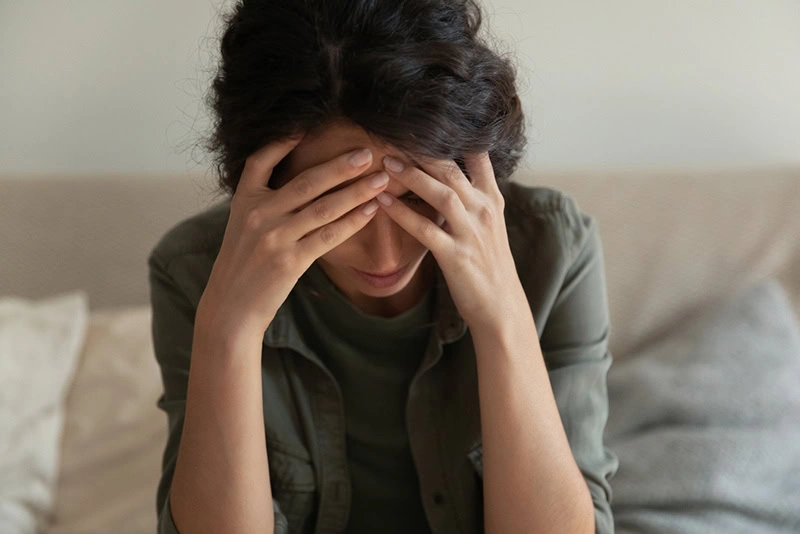Alcoholism can significantly impact eyesight, causing both short-term and long-term effects. In the short term, alcohol impairs visual functions such as depth perception, binocular vision, and eye coordination, increasing risks like impaired driving and blurry or double vision due to its depressant effects and dehydration. Long-term heavy alcohol use is linked to serious eye conditions including cataracts, age-related macular degeneration, diabetic retinopathy, optic neuropathy, and other disorders that can lead to vision loss or discomfort. Protecting eye health involves regular exams, proper nutrition, and reducing alcohol intake. For those struggling with alcohol addiction, seeking specialized treatment—such as the individualized, supportive programs at Buddy’s Ranch—can be crucial for both recovery and preserving vision.
Does Alcoholism Affect Eyesight?
A common concern among those struggling with substance use is, “Does alcoholism affect eyesight?” Experts agree that alcohol’s impact on the eyes can be both immediate and long-lasting. From blurry vision after a night of drinking to serious optic nerve damage, understanding how alcohol and alcoholism affect eyesight is essential for protecting your vision.
Short-Term Effects of Alcohol
Alcohol poses serious short-term safety concerns, perhaps most commonly illustrated by the relationship between vision and driving. Research shows a statistically significant correlation between alcohol-induced deterioration in visual function and impaired driving performance, and even moderate alcohol consumption can impair binocular vision, depth perception, and vergence (the ability of both eyes to work together).
According to the World Health Organization (WHO) and its Global Information System on Alcohol and Health (GISAH), a total of 1,350,000 road traffic deaths were reported in 2016. 370,000 (27.4%) were related to alcohol consumption. This connection underscores the critical role of clear, coordinated vision in safe driving and reinforces the dangers of drinking even small amounts before driving.
Many people often experience blurred or double vision after drinking due to alcohol’s depressant effect on the central nervous system. Alcohol dehydrates the body, which can lead to dry eyes, raising the risk of discomfort, redness, and light sensitivity.
Long-Term Effects of Alcohol
Chronic alcohol consumption has also been linked to several increased health risks, including:
- Cataracts: A clouding of the eye’s natural lens that causes blurry vision
- Age-related Macular Degeneration (AMD): A progressive eye condition that affects the macula, leading to central vision loss
- Diabetic Retinopathy: A complication of diabetes that damages the blood vessels in the retina, potentially leading to vision loss or blindness
- Optic Neuropathy: A group of conditions that involve damage to the optic nerve, often resulting in vision loss
- Impairment of Visual Quality: Reduced clarity, contrast sensitivity, or stability in vision
- Retinal Vascular Disease: A range of disorders affecting blood vessels in the retina that can impair vision
- Ocular Surface Disease: A group of conditions that affect the outermost layers of the eye and can cause discomfort and blurred vision
Alcohol Addiction Treatment at Buddy’s Ranch
Alcoholism’s effect on eyesight shouldn’t be underestimated. While moderate alcohol intake generally won’t cause permanent harm, heavy or prolonged alcohol use poses serious risks, from dry eyes and blurred vision to irreversible optic nerve damage. Regular eye exams, proper nutrition, and reducing alcohol consumption are vital steps in protecting your vision health.
If you or a loved one is having a hard time achieving lasting sobriety and you are ready to start treatment for alcohol addiction, reach out to us today. Our alcohol rehab program provides individualized care, without judgment, in a peaceful environment.
Does Alcoholism Affect Eyesight – FAQs
Can alcohol affect your vision immediately?
Yes—alcohol can impair vision even after a single drink. It disrupts your vestibulo‑ocular reflex, which is what stabilizes your visual field during head motion by producing eye movements in the opposite direction. As a result, a person may experience blurred or double vision, delayed pupil reactions, and difficulty judging distances. Although these effects are temporary and typically dissipate as blood alcohol levels drop, they can pose serious safety risks, especially when performing visual tasks like driving.
What is alcohol-related optic neuropathy?
Alcohol-related optic neuropathy is damage to the optic nerve caused by chronic alcohol abuse and nutritional deficiencies. It can cause vision loss, altered color perception, and can result in blind spots, often in the center of one’s vision. Recovery is more likely with early intervention, including stopping the use of alcohol alcohol and improved nutrition.
Are changes to one’s eyesight caused by alcohol reversible?
Yes and no. Short-term vision changes from alcohol, such as blurred vision or poor depth perception, usually go away as alcohol clears from the system. However, longer-term issues such as optic neuropathy or nutritional deficiencies can lead to permanent vision loss. Studies suggest that stopping alcohol and correcting nutrient deficiencies (especially of vitamins B1 and B12) can lead to partial or full recovery. Extended exposure to alcohol or severe deficiency may cause irreparable nerve damage.
What should I do if I notice vision changes related to alcohol?
If you experience blurry vision, color changes, blind spots, double vision, or other visual symptoms, especially with heavy alcohol use, it is recommended that you consult an eye care specialist (optometrist or ophthalmologist). They can assess optic nerve health, order blood tests for nutritional deficiencies, and make referrals if needed. Early detection is so important and can help prevent permanent damage.
Is there a link between alcohol and cataracts?
Research has shown that with moderate alcohol consumption, there is not much of a correlation. However, heavy alcohol consumption significantly increases the risk of cataracts. As a result, most experts recommend limiting alcohol intake to reduce the risk of cataracts.
Can alcohol withdrawal cause changes in eyesight?
Yes, alcohol withdrawal can cause temporary or, in some cases, more serious changes in eyesight. During withdrawal, the nervous system becomes hyperactive, which may lead to symptoms such as visual hallucinations, blurred vision, or increased light sensitivity. These changes are typically the result of the body adjusting to the absence of alcohol after chronic use. One example is alcohol hallucinosis, a symptom where a person hallucinates (sees or feels things that are not real). For example, they might see multiple small, similar, moving objects. Alcohol withdrawal hallucinations can be very detailed and imaginative.
What are the early warning signs of alcohol-related eye damage?
Early signs of alcohol-related eye damage may be subtle but should not be ignored. Common symptoms include blurred vision, difficulty focusing, dry eyes, and increased sensitivity to light. People may also experience twitching eyelids, reduced peripheral vision, or trouble seeing at night. Because many early symptoms may resemble general eye fatigue or aging, they are often overlooked. If you or someone you know drinks heavily and is experiencing persistent vision problems, consider a comprehensive eye exam.
What types of eye exams can detect alcohol-related vision problems?
If you or a loved one has been a heavy user of alcohol, doctors can check your eyes with a variety of exams. A comprehensive eye exam performed by an optometrist or ophthalmologist typically includes a detailed review of your health and vision history, tests for visual clarity (like reading charts), and checks for depth perception, color vision, and eye muscle function. Doctors also measure the cornea’s shape and test how well your eyes focus. Eye movement and coordination are assessed to ensure both eyes work together properly. Finally, the doctor examines the health of the eye using specialized tools and may use dilating drops to better view internal structures and check for diseases. These tests help detect vision issues and underlying health conditions early.





